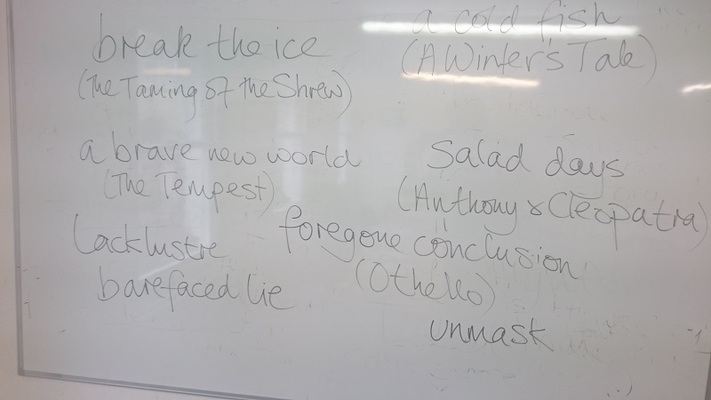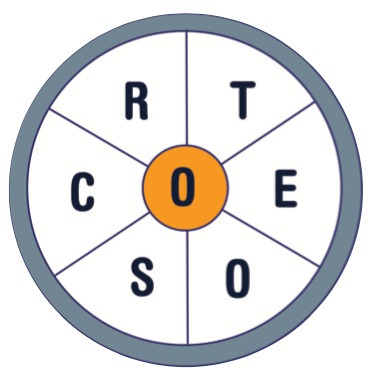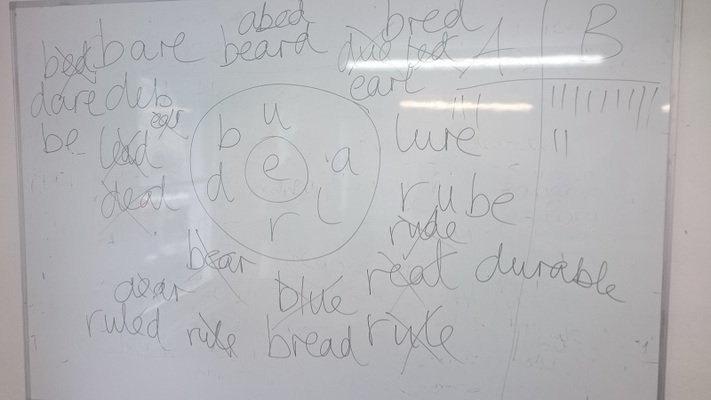DAY TEN - FIRST PART (WEDNESDAY)
1. Shakespeare's Englesh ... William Shakespeare (1564-1616) was not only a prolific writer, he said to have introduced thousands of words and phrases into the English language.
Examples: "Green-eyed monster", "Love is blind", "Wild goose chase", "Seen better days", "Fair play", "All that glitters is not gold".

2. School boy - a text describing students and schools in the past has sparked a conversation about whether we can make learning things different, easier.
How can we learn differently, examples:
Periodic Table of the Elements in a Song - youtube
R O J G B I V - Richard of York won the battle in vain.
ABAKUS in mathematics
3. The most important part at the end is Word Wheel, a nice game where it has one letter in the middle and six around, should compose as many words as possible using any number of letters around and a mandatory letter in the middle (each letter in one word may appear only once ) and create as many words as possible - more teams can compete. In the end, points are awarded only for words that the other team does not have.


DAY TEN - SECOND PART (WEDNESDAY)
ORGANISATIONAL EFFECTIVENESS
1. The cycle of successful organization starts with a leader who promotes a good culture, performs quality controls (firm but not coarse administrative and cultural ones, directs improvements and promotes development.
2. In the structure of the organization, it is important to have clearly defined frameworks for everyone, students, teachers, job descriptions, protocols, deadlines…
3. Interesting - in their schools, students get a lot of roles - who opens the windows, who lowers the curtains, who collects the garbage after an hour, who goes to convey the message…
4. The organization needs to be constantly pushed, have concrete but not excessive demands…
5. The teacher must be very present among teachers and students
6. Effectiveness expectations It is important to constantly communicate with teachers.
7. When efficiency becomes part of the culture of the organization, the student will bend down and pick up the paper without warning, the teacher will go to the classroom at the ring…
8. Culture is something up in the air
9. If we are a learning organization then everyone is learning all the time… Students learn not only mathematics but many other things, from values and relationships onwards, as well as teachers - we are not done and formed.
With this topic we have concluded the part of the program that is related to the management and management of the organization.
IDEAS AND CHANGE MOTIVATION
(LEARNING THROUGH EXPERIENCE OF NATURAL AND CULTURAL BEAUTY AS WELL AS DIFFERENCES)